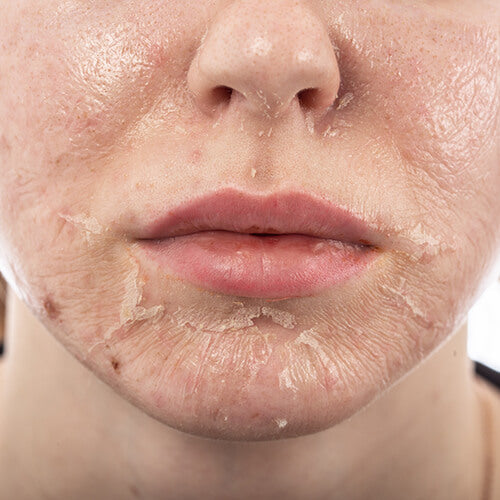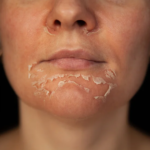Chemical peels have become one of the most popular non-surgical cosmetic treatments worldwide. They promise smoother, clearer, and more youthful-looking skin through controlled exfoliation. But while these treatments are celebrated for their rejuvenating effects, some people wonder — can chemical peels actually damage your skin? It’s a valid question, especially for those considering Chemical Peels in Dubai, where skincare is taken seriously and aesthetic treatments are part of a growing beauty culture.
Understanding What a Chemical Peel Does
A chemical peel is a skin-resurfacing procedure that involves applying a chemical solution to the face, neck, or hands. The peel gently removes the outer layers of dead skin, stimulating cell turnover and collagen production. This process reveals fresher, brighter skin beneath while helping improve fine lines, acne scars, pigmentation, and uneven texture.
Depending on the strength, peels are categorized as:
-
Superficial peels: Mild acids like glycolic or lactic acid target the outermost layer of the skin.
-
Medium peels: Trichloroacetic acid (TCA) penetrates deeper to treat wrinkles and pigmentation.
-
Deep peels: Phenol-based solutions go further into the dermis to address severe sun damage and deep wrinkles.
When performed correctly, chemical peels are safe and effective. Problems usually arise when they’re done improperly or without considering individual skin types and sensitivities.

Can Chemical Peels Damage the Skin?
In short — yes, chemical peels can cause skin damage if not administered under professional supervision or if the wrong type of peel is used. The key to safety lies in professional assessment and proper aftercare.
Here are the most common risks when peels are misused or poorly executed:
1. Over-Exfoliation
Overdoing chemical peels can strip away too many layers of skin, weakening its protective barrier. This may cause redness, irritation, dryness, and sensitivity. Frequent or aggressive treatments without sufficient recovery time can harm the skin rather than help it.
2. Hyperpigmentation or Hypopigmentation
Skin discoloration can occur if peels are too strong for your skin type. Darker skin tones are especially prone to hyperpigmentation (dark patches), while lighter tones may develop hypopigmentation (light spots). That’s why professionals offering Chemical Peels carefully assess the Fitzpatrick skin type before selecting the right peel and strength. Tailoring the treatment minimizes these risks significantly.
3. Burns and Scarring
Improper application, incorrect peel concentration, or inadequate neutralization can lead to chemical burns or scarring. Deep peels, in particular, should only be performed by certified dermatologists or medical professionals experienced in handling potent acids.
4. Infection
After a chemical peel, the skin is more vulnerable. If proper hygiene and post-care instructions are not followed, bacteria can enter the healing skin, leading to infection or prolonged inflammation.
5. Increased Sun Sensitivity
Post-peel skin becomes more sensitive to UV rays. Without adequate sun protection, the skin may experience sunburn or pigmentation issues. Sunscreen and limited sun exposure are crucial after every peel session.
How to Prevent Skin Damage
To minimize the risk of skin damage, follow these essential steps before and after undergoing a chemical peel:
Choose the Right Type of Peel
Not all peels are suitable for everyone. Sensitive or dry skin may react negatively to stronger acids, while oily or acne-prone skin might benefit from salicylic acid peels. Consulting a skincare expert ensures the right match for your specific concerns.
Get Treated by Qualified Professionals
Always have your chemical peel performed by a licensed dermatologist or aesthetician with medical training. Clinics specializing in Chemical Peels are known for using FDA-approved products and sterile techniques, ensuring both safety and results.
Follow Pre-Treatment Guidelines
Before your session, avoid exfoliating products, retinoids, and sun exposure. This helps prepare the skin and reduce the risk of irritation or uneven peeling.
Adopt Proper Aftercare
After the peel, gentle skincare is essential. Use a mild cleanser, soothing moisturizer, and sunscreen daily. Avoid scrubbing, picking, or applying makeup until the skin fully recovers.
Don’t Overdo It
Peels should be spaced out according to your provider’s recommendation. Frequent treatments can thin the skin barrier and trigger sensitivity. Allow your skin adequate time to regenerate between sessions.
When Performed Safely, Peels Are Transformative
It’s important to note that while chemical peels carry risks, these are rare when performed correctly. In fact, when done by professionals, peels can be transformative. They help refine pores, smooth fine lines, fade acne scars, and restore overall skin radiance. The key is customization — tailoring the peel’s strength, acid type, and frequency to your unique skin profile. Dubai’s skincare experts excel in this, ensuring safety while maximizing results. With Dubai’s advanced aesthetic technology and highly trained professionals, chemical peels can deliver rejuvenated skin without complications.
The Role of Environment and Lifestyle
Dubai’s hot and sunny climate can affect how your skin reacts to treatments. Exposure to UV rays after a peel increases the risk of pigmentation, so it’s vital to follow post-treatment sun care. Hydration also plays a role — dry environments can slow healing, making moisturization an important step after every peel. Reputable clinics offering Chemical Peels Dubai treatments provide personalized aftercare guidance suited to the city’s weather, ensuring clients maintain glowing, healthy skin post-procedure.
Conclusion
So, can chemical peels damage your skin? The answer is yes — but only if they’re misused or performed without proper expertise. When carried out by qualified professionals using the right formulas and safety protocols, chemical peels are one of the most effective treatments for achieving smoother, younger-looking skin. If you’re considering rejuvenating your complexion, seek a trusted provider of Chemical Peels who understands your skin type, goals, and lifestyle. With expert care, the procedure won’t damage your skin — it will enhance it, leaving you with a radiant, refreshed appearance that truly glows.

